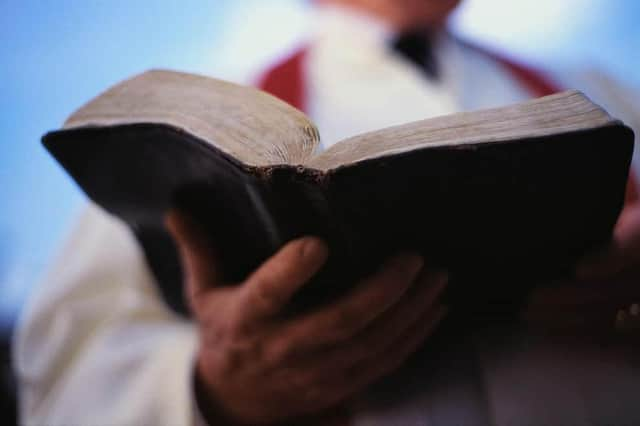Service in Ballymena to celebrate Church of Ireland and Moravian church strengthening ties


To celebrate this, a special service takes place this Monday afternoon (March 18), starting in St Patrick’s Church, Ballymena, at 1.30pm and continuing in Gracehill Moravian church outside Ballymena at 3.30pm.
Church of Ireland primate Archbishop John McDowell will preach in St Patrick’s with Bishop Sarah Groves, from the Moravian church, leading participants sharing in holy communion in Gracehill. Trees will be planted in the grounds of each place of worship to mark this celebration, and a reception at Gracehill will follow.
Advertisement
Hide AdAdvertisement
Hide AdBishop Groves has expressed joy at what had become known as the ‘Armagh Agreement’ between the two churches. She said that she was sure this would “bring increased vitality to both denominations enriching their worship and enabling them to share the resources of people, faith and service.”
Bishop Michael Burrows, chairman of the Church of Ireland’s commission for Christian unity and dialogue, added: “The Moravian church and the Church of Ireland have so much in common and so many spiritual riches to share with one another.
"We both cherish the ministry of word and sacrament, and a similar commitment to the place of the historic episcopate. We have shared a joyful journey towards the achievement of interchangeable ministry between us, and I’m thrilled that this new stage in our relationship will be marked by a highly imaginative liturgical celebration in Ballymena and Gracehill on March 18.”
The Moravian Church, originally called the 'Unity of the Brethren', was first organised as a communion in Kunvald, near the modern town of Zamberk, in what is now Czechia (the Czech Republic).
Advertisement
Hide AdAdvertisement
Hide AdAlthough formally established in 1457, its origins reach back 50 years earlier to the Czech Protestant Reformation. Merging into the Protestant movement that grew out of the Lutheran Reformation, the Moravian church today is currently comprised of 24-linked provinces worldwide.
The presence of the Moravian church in Ireland is due mainly to the influence of the English evangelist John Cennick, who was active on these islands between 1746 and 1755.
The Church of Ireland traces its history to the early Irish church founded by St Patrick, who is believed to have tended livestock while in slavery on Slemish in the Antrim hills. The church has been influenced over time by the development of dioceses and parishes in the Middle Ages, the Protestant Reformation, and its disestablishment in 1871 which ended its status as a state church, although continuing as a denomination with an all-island presence.
The Church of Ireland, with 12 dioceses - five located in Northern Ireland in Armagh, Clogher, Connor, Down and Dromore, and Derry, forms part of the Anglican Communion, a family of 42 self-governing global member churches, and is actively involved in both formal ecumenism and the building of good relations in everyday life with its neighbours around Ireland today.
Advertisement
Hide AdAdvertisement
Hide AdThe Church of Ireland has around 343,000 members – 219,000 in Northern Ireland and 124,000 in the Irish Republic. The Moravian Church’s membership is 500 in Northern Ireland, and there are five Moravian churches here: Gracehill (Ballymena), Ballinderry, Kilwarlin (Hillsborough), and University Road,and Cliftonville in north Belfast. The Moravians have a very large population outside Europe due to their global missionary efforts.